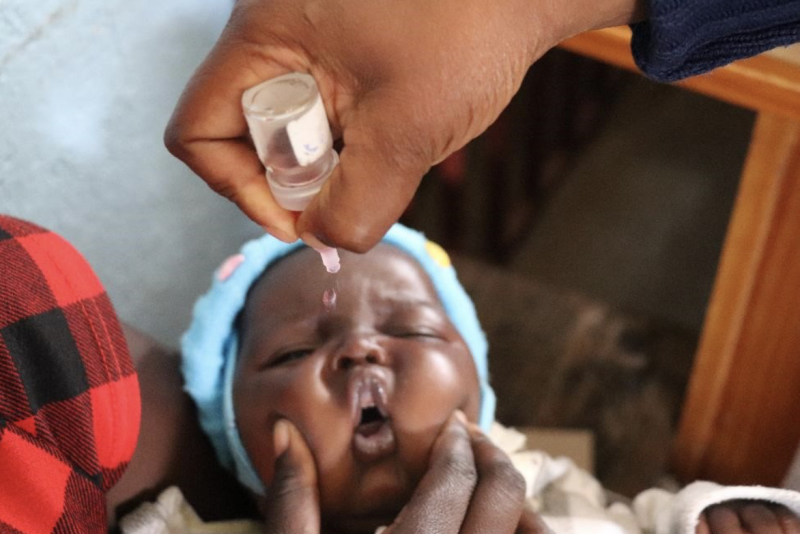
Zimbabwe: Data-driven decisions maintain availability and access to essential health services during the COVID-19 response
Date: 01-04-2021
Lilosa Muti’s 6-week old baby, Joshua, was due to have his rotavirus and Penta vaccine, which protects against diphtheria, tetanus, whooping cough, polio and other serious diseases. But Lilosa had no intention of taking him to his appointment at the health clinic at Bikita Rural Hospital in Masvingo Province, Zimbabwe.
“l was scared my son might be infected with COVID-19 if he visited the hospital. We have had 3 reported COVID-19 cases in Bikita and rumour has it one of the cases had visited the hospital before,” explained Lilosa.
Thankfully, a village health worker spoke with Lilosa and allayed her fears. Two days later, she visited the hospital where she was surprised to learn that all services were available. On arriving, Lilosa and baby Joshua underwent the COVID-19 pre-screening process before the appointment and then Joshua received all his vaccines.
Claretta Majova, a specialist in integrated management of childhood illness, was the nurse on duty. She followed the standard operating procedures during COVID-19, including Infection Prevention and Control (IPC), as prescribed by the Ministry of Health and Child Care (MoHCC). She also took the opportunity to disseminate messages to encourage behaviours that reduce the transmission of COVID-19. She expressed concern about the general lack of attendance.
“We have experienced a huge decrease of clients coming to the hospital for essential services such as vaccines. This has been due to the national lockdown, which restricted movements in March, 2020. In addition, the communication gap in Bikita was filled with misinformation, which led residents like Lilosa to not visit the hospital to vaccinate her baby,” said Claretta.
This situation is replicated right across Zimbabwe, with a decline in people accessing essential services in health facilities in all 10 provinces. Yet these are crucial for their health and wellbeing.
WHO, with support from the Universal Health Coverage Partnership, has worked closely with the MoHCC and provided technical assistance to strengthen the delivery of essential health services at rural, district and provincial health facilities prior to and during the COVID-19 pandemic. The MoHCC, with technical guidance from WHO, developed a tool to monitor disruptions of the delivery of essential health services caused by industrial action. The MoHCC conducted a field test and trained health workers to use the tool before it was adopted and implemented.
As a result of the routine monitoring tool, the MoHCC was able to receive data that enabled them to identify and address the challenges affecting delivery of essential health services. For example, they embarked on integrated outreach and ensured health care workers had access to much-needed personal protective equipment (PPE) according to the findings of the IPC assessment. The routine monitoring of health services report was used to inform the prioritization of fieldwork on the Rapid Assessment of continuity of essential services and to triangulate the results of the assessment.